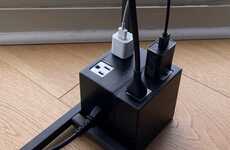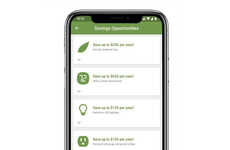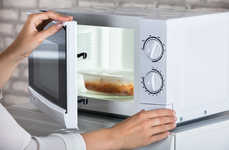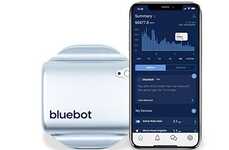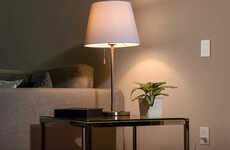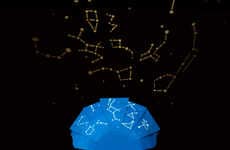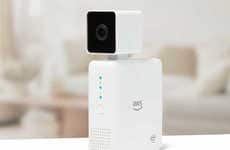
The Smart Meter Relays What Devices are Using the Most Power
Ellen Smith — October 4, 2017 — Eco
References: 42technology & psfk
More often than not, homeowners are unaware of the ways in which power is being unnecessarily consumed, which is what prompted UK-based engineering company 42 Technology to create the Smart Meter -- a personal power bar that measures what devices are drawing the most power in one's home.
The meter gathers its information through an algorithm which was designed to detect special characteristics of particular appliances. After the algorithm has been applied, curious users can access the information through an accompanying smartphone app, which relays the data in a manner that's both accessible and comprehensible.
This Smart Meter from 42 Technology enables consumers to consciously make decisions with regards to what devices should and shouldn't be left on.
The meter gathers its information through an algorithm which was designed to detect special characteristics of particular appliances. After the algorithm has been applied, curious users can access the information through an accompanying smartphone app, which relays the data in a manner that's both accessible and comprehensible.
This Smart Meter from 42 Technology enables consumers to consciously make decisions with regards to what devices should and shouldn't be left on.
Trend Themes
1. Smart-home Energy Monitoring - Developing user-friendly technology that tracks energy usage throughout a home presents an opportunity to reduce energy waste and encourage more conscious consumption.
2. Algorithmic Energy Analysis - Creating algorithms that can accurately detect the energy usage of specific appliances or devices offers potential for better data collection and analysis to aid in energy conservation efforts.
3. Personalized Power Management - Designing technology that provides users with tailored energy consumption insights can empower individuals to make more informed decisions about their energy use and encourage accountability.
Industry Implications
1. Smart Home Technology - Developing energy-efficient smart home devices, such as appliances or thermostats, that are compatible with energy-monitoring technology can support more sustainable energy use habits.
2. Data Analytics - Developing new algorithms that can accurately analyze energy usage in homes offers potential for insights that can be used by utility companies, policy makers, and individuals alike.
3. Renewable Energy - Pairing energy-monitoring technology with renewable energy sources, such as solar panels, can enable homeowners to make more informed decisions about energy use and maximize savings.
2.4
Score
Popularity
Activity
Freshness



